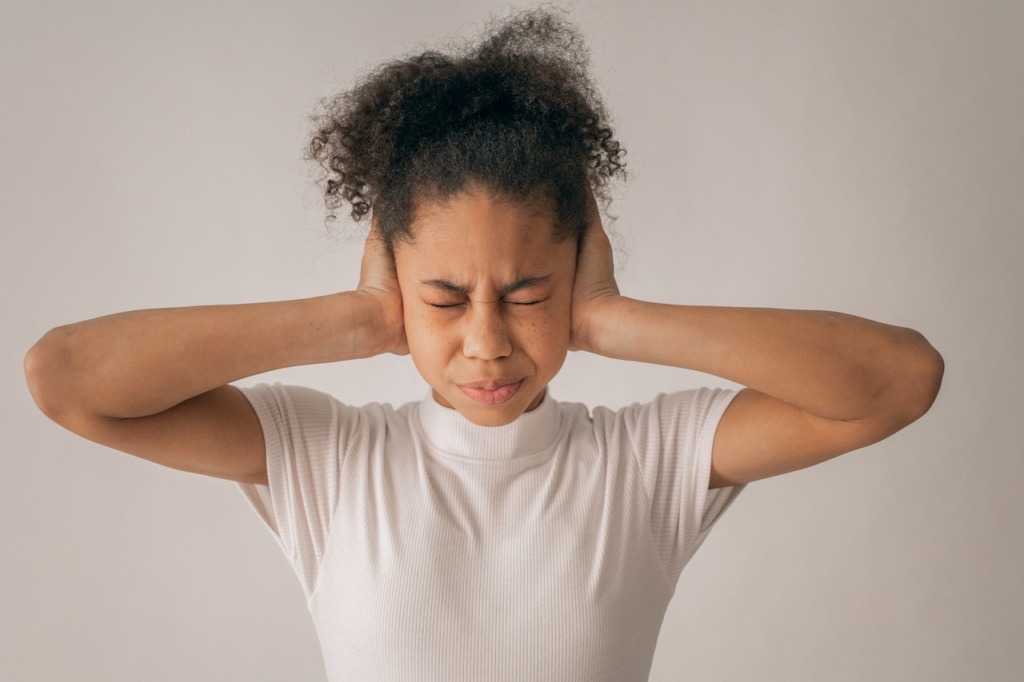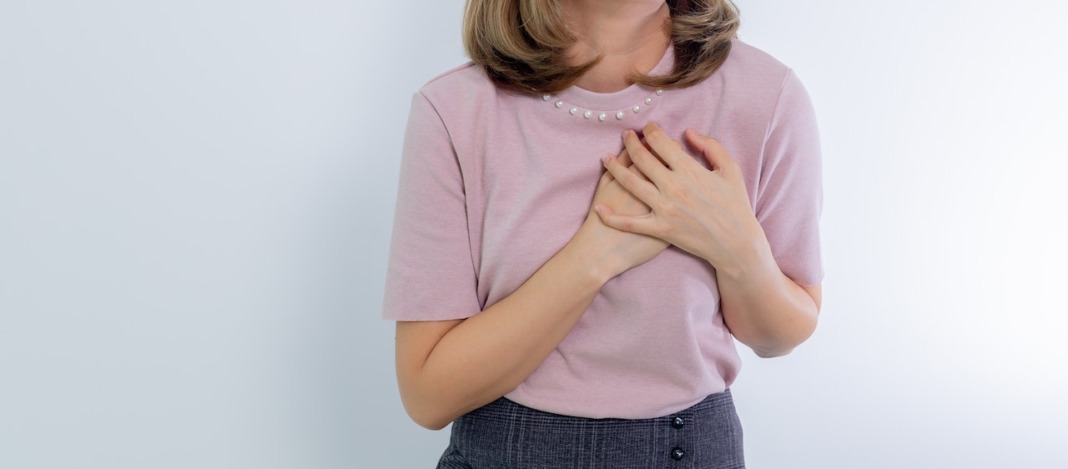What are the physical symptoms of Anxiety?
Anxiety is a widespread mental health problem that affects millions of individuals throughout the world. It can be induced by a variety of circumstances, including job stress, worry, restlessness, financial difficulties, or traumatic occurrences. Anxiety frequently generates physical symptoms that can disrupt everyday living and bring further misery.
Anxiety can cause minor to severe physical symptoms such as heart palpitations, sweating, shaking, and difficulty breathing. These symptoms are caused by the body’s natural reaction to perceived danger or threat, commonly known as the “fight or flight” response.
However, in those suffering from anxiety disorders, this response is produced even when there is no genuine risk. This article will look at some of the most frequent physical symptoms of anxiety and offer advice on how to deal with them.
Physical Symptoms Of Anxiety

1. Rapid Heartbeat
A rapid heartbeat is one of the most common symptoms of anxiety, and it can be triggered by feelings of stress, fear, or worry. When you experience anxiety, your body goes into fight-or-flight mode, causing your heart to beat faster and stronger in order to prepare you for action. However, this reaction can cause discomfort and exacerbate feelings of anxiety.
It should be noted that a fast pulse does not necessarily imply an underlying medical issue. In reality, it is frequently a sign of anxiety, which may be addressed with a variety of coping methods, such as deep breathing exercises or mindfulness practices. Seeking professional treatment may be advantageous if you have recurrent bouts of a racing heart accompanied by additional symptoms of anxiety such as shaking or sweating.
Understanding the connection between physical symptoms and mental health is critical when dealing with anxiety symptoms. While a quick pulse might be disturbing in and of itself, it’s important to realize that it’s only one component of how you’re feeling. The next stage will be to look at how shortness of breath might emerge during times of high anxiety.
2. Shortness Of Breath
Have you ever had the sensation that the air around you is becoming thinner and your breaths are becoming shorter? Shortness of breath is a typical sign of anxiety. This physical manifestation can occur for a variety of causes, including anxiety-induced hyperventilation or fast breathing, tightness in the chest muscles, or even underlying respiratory difficulties.
Shortness of breath during an anxiety episode might exacerbate an already difficult mental health situation. Here are some highlights of how it feels:
- The sensation of tightness in the chest area
- Difficulty inhaling deeply enough to feel fully satisfied
- Short gasps instead of long deep breaths
- A feeling that one just isn’t getting enough oxygen
It’s crucial to remember that these symptoms don’t necessarily indicate any serious medical condition beyond an individual’s existing anxiety disorder. However, if this symptom persists without any apparent explanation, it may be wise to consult a physician.
In addition to seeking professional help, there are also self-care techniques individuals can employ when experiencing shortness of breath related to anxiety. Try focusing on slow and controlled breathing exercises or practicing mindfulness meditation techniques regularly.
These practices have shown promise in reducing instances where anxious thoughts lead to physically manifested discomfort.
As we move forward into discussing ‘muscle tension’, let us keep in mind that our bodies are complex machines that require care and attention from both inside and outside influences.

3. Muscle Tension
Did you know that muscle tension is another common physical symptom of anxiety? In fact, according to a study published in the Journal of Anxiety Disorders, up to 68% of individuals with generalized anxiety disorder experience muscle tension. This can manifest as tightness or soreness in various parts of the body, such as the neck, shoulders, back, and jaw.
When we feel anxious, our bodies go into “fight or flight” mode, which triggers the release of stress hormones like cortisol and adrenaline. These hormones cause our muscles to tense up in preparation for action. However, if there is no actual danger present and we are not able to physically discharge this energy through movement (i.e., running away from a threat), then the tension remains in our muscles.
Muscle tension can be uncomfortable and even painful at times. It can also lead to other physical symptoms such as headaches and fatigue. One way to alleviate muscle tension caused by anxiety is through relaxation techniques such as deep breathing exercises or progressive muscle relaxation.
Next up on the list of physical symptoms of anxiety are gastrointestinal issues. While muscle tension may seem unrelated to digestive problems, research has shown that they are often linked due to the gut-brain axis – but more on that later.
4. Gastrointestinal Issues:
Just like the famous adage goes, “The stomach is the way to a person’s heart.” However, for those experiencing anxiety, gastrointestinal issues can be one of the most common physical symptoms. These issues range from nausea and vomiting to diarrhea or constipation.
The connection between anxiety and gastrointestinal problems lies in how our body reacts when we are anxious. Stress hormones released during periods of anxiety can cause changes in digestion and increase sensitivity in the gut. This may result in pain, bloating, and other uncomfortable sensations.
Moreover, people with pre-existing digestive conditions such as irritable bowel syndrome (IBS) are more likely to experience worsened symptoms due to anxiety. The fear of having an embarrassing incident or being away from home can trigger a flare-up of IBS symptoms.
Therefore, it’s crucial for individuals who experience ongoing GI discomfort along with their anxiety to seek medical help. A doctor might recommend treatments like cognitive-behavioral therapy or medication that could ease both of these concerns simultaneously.
In conclusion, managing stress levels through relaxation techniques like yoga or deep breathing exercises while incorporating lifestyle modifications such as regular exercise and enough sleep could also reduce the chances of developing gastrointestinal issues caused by anxiety.
5. Constant Fatigue:
According to the NIMH, another bodily symptom of anxiety to be aware of is the feeling of being always fatigued or worn out. For starters, the anxiety-induced increase in stress hormones can put you on high alert, which can be exhausting, according to Dr. Potter. However, there is another aspect that contributes to fatigue: sleep and worry have a tangled relationship, which leads to anxiety.
Other symptoms of anxiety are:
- Immune system issues
- Throat tightness
- Decreased or increased appetite
- Shakiness or trembling
- Being easily startled
- Nonstop nervous sweating
- Nausea
- Constant exhaustion and trouble sleeping.
Conclusion
In conclusion, experiencing anxiety can be a very uncomfortable and overwhelming experience. While anxiety is primarily considered a mental health issue, its physical symptoms should not be overlooked. Recognizing and understanding the physical manifestations of anxiety is crucial for effective management and overall well-being. If you experience any of these physical symptoms of anxiety, it is essential to consult a healthcare professional who can help diagnose and develop a tailored treatment plan. Addressing anxiety holistically can effectively manage both the psychological and physical aspects, promoting a healthier and more balanced life.



